 Petzlover
Petzlover Havanese is originated from Cuba but Mal-Shi is originated from United States. Both Havanese and Mal-Shi are having almost same height. Both Havanese and Mal-Shi are having almost same weight. Both Havanese and Mal-Shi has almost same life span. Havanese may have more litter size than Mal-Shi. Havanese requires High Maintenance. But Mal-Shi requires Moderate Maintenance
Havanese is originated from Cuba but Mal-Shi is originated from United States. Both Havanese and Mal-Shi are having almost same height. Both Havanese and Mal-Shi are having almost same weight. Both Havanese and Mal-Shi has almost same life span. Havanese may have more litter size than Mal-Shi. Havanese requires High Maintenance. But Mal-Shi requires Moderate Maintenance
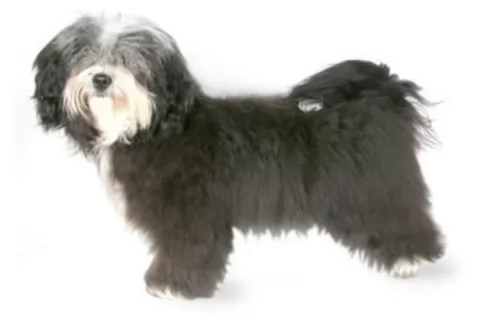 The only breed of dog that is native to Cuba is the Havanese. These little dogs are great companion animals. Sociable and happy, they are very popular in the United States with urbanites. These happy little pups are a Bichon type of dog which was developed from the “Little White Dog of Havana” or the Blanquito de la Habana which is now extinct.
The only breed of dog that is native to Cuba is the Havanese. These little dogs are great companion animals. Sociable and happy, they are very popular in the United States with urbanites. These happy little pups are a Bichon type of dog which was developed from the “Little White Dog of Havana” or the Blanquito de la Habana which is now extinct.
The Blanquito de la Habana was itself developed from another extinct breed the Bichon Tenerife. Then the Blanquito was bred with the other Bichons and poodles in developing the Havanese. It is believed that some of the first people to settle in Cuba were from Tenerife, an island close to Cuba. In the early part of the sixteenth century, little white dogs were brought to Cuba with these settlers. This dog of Tenerife is believed to be the ancestor of all Bichon breeds.
At that time trade with Cuba was highly restricted by the Spanish and so these dogs developed without any crossing from other breeds from outside the country. They grew to be able to stand hot temperatures and they grew a very unique coat – almost like silk. Their coat is soft and light, while insulating them from the tropical environment.
At this time Cuba was the place to be for Europeans aristocrats on vacation. Unlike the British colonies, Cuba had theatres, operas and palacious. When going back to Europe, many took this little white dog with them to France, Spain and England. The Dog of Havannah was a favorite on European soil as well. Many of these dogs taken to Europe were fawn or parti instead of white. Meanwhile back in Cuba, the bourgeoisie were replacing the aristocracy who themselves would soon be replaced by the Revolution.
During the days of the bourgeoisie, the Havanese became very popular household pets. The breed has been a family pet for the last 150 years. At the same time the breed was very trendy in Europe with Charles Dickens and Queen Victoria owning several. They were by now familiar participants in Europe’s dog shows. Finally, with the Revolution, the bourgeoisie left the country in droves with their little white dogs. A genetic pool was then formed in the US. Gene pool from 11 dogs. All the Havanese in the world are descended from those 11 dogs with the exception of the dogs isolated in Cuba and the US. Today the Havanese is one of the most popular and fastest growing breeds in the world.
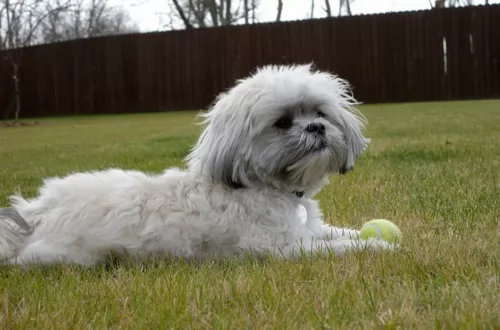 Small and pretty, the Mal-shi is a new crossbreed dog which originated in the United States and only recently - in the 1990s.
Small and pretty, the Mal-shi is a new crossbreed dog which originated in the United States and only recently - in the 1990s.
There hasn’t been much interest shown in developing this small dog into an independent breed, so most of these dogs are regarded as crosses from the two parent breeds – the Maltese Poodle and the ShihTzu.
Known as a designer dog he was also bred to be a low shedder. No breed clubs for this dog have been established and there are no breed standards either.
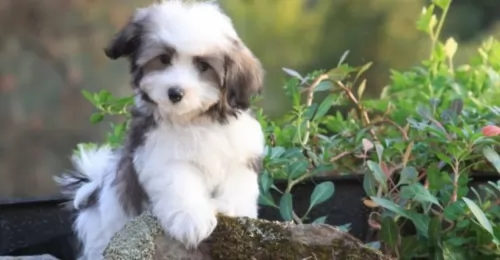 The Havanese is a sturdy little dog, a member of the toy group. They weigh no more than 16 pounds (7.3kg) and his body is longer than it is tall. The breed has a unique topline that is not level, but it is straight. His front legs are longer than his hind legs producing the lively gait everyone is used to seeing with a Havanese. With a full muzzle that tapers to the nose, the Havanese does not seem to be short. The skull’s length is the same as the muzzle’s. The head of the Havanese is round in the back and flat in the front.
The Havanese is a sturdy little dog, a member of the toy group. They weigh no more than 16 pounds (7.3kg) and his body is longer than it is tall. The breed has a unique topline that is not level, but it is straight. His front legs are longer than his hind legs producing the lively gait everyone is used to seeing with a Havanese. With a full muzzle that tapers to the nose, the Havanese does not seem to be short. The skull’s length is the same as the muzzle’s. The head of the Havanese is round in the back and flat in the front.
They have a deep chest, almond shaped eyes that are dark brown and their ears are about halfway down the nose. The long ears hang down the side od the face. They have a long plumed tail that is held high and upward. The standard for the breed and now the laws of the United Kingdom state that there can be no docking of the tail.
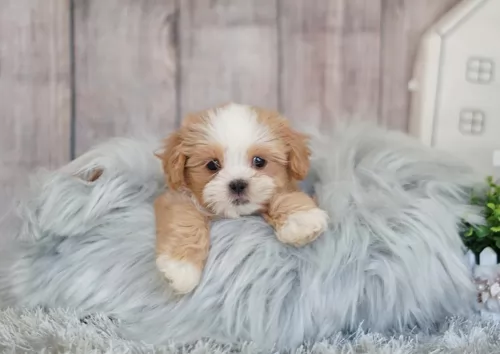 The Mal-Shi is a small dog standing at around 25–30 cm in height and weighing between 3 and 7kg. As a designer dog he has a low-shedding coat of many colors – white, black and white, white and apricot and brown.
The Mal-Shi is a small dog standing at around 25–30 cm in height and weighing between 3 and 7kg. As a designer dog he has a low-shedding coat of many colors – white, black and white, white and apricot and brown.
The coat is usually soft and silky and slightly wavy and it can grow long if left untrimmed. Most people take their pets to a professional groomer to be cut.
The skull of the dog is domed, he has small ears which can be half-erect and half-floppy.The tail is long and fairly feathery. Sometimes the dog inherits the underdeveloped tear duct of the Maltese and then there is that usual tear-staining around the eyes.
THE Mal-Si is such a cute little dog, making him a splendid pet for children and he is more than happy to be cuddled and petted. Small and active, he is adaptable and will live easily in the city or the countryside, as his exercise needs aren’t that demanding. He basically requires a walk each day and will love some ball games both inside and outdoors.
He is an extrovert and also an entertainer, and his amicable nature allows him to get along with other pets in the home. However, contrary to what he looks like, he is a bold dog, social and also intelligent, making him easy to train.
It is to any owner’s advantage to have a little dog like this trained and socialized, even though he is so good natured. He makes a great therapy dog too. When the Mal-Shi is at home he’s an affectionate, loving dog who just wants to spend time in the company of his human family.
As a companion dog, he won’t do well when left for hours on end on his own. Dogs are social creatures, and they can battle with separation anxiety when left alone for too long. Every dog owner needs to think of this before investing in a dog.
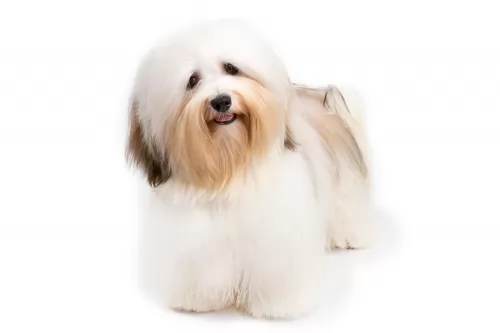 Havanese are highly intelligent and eager to please, and they are easily trained so long as you use only positive methods. This can be a sensitive breed, so care must be taken to not scold them harshly. Socialization from an early age is very important. Expose them calmly to a wide variety of new places and new people, always ensuring that the experiences are positive and not intimidating. Gentle, patient training will result in a wonderful companion dog. They are affectionate with people and get along with other nonaggressive pets.
Havanese are highly intelligent and eager to please, and they are easily trained so long as you use only positive methods. This can be a sensitive breed, so care must be taken to not scold them harshly. Socialization from an early age is very important. Expose them calmly to a wide variety of new places and new people, always ensuring that the experiences are positive and not intimidating. Gentle, patient training will result in a wonderful companion dog. They are affectionate with people and get along with other nonaggressive pets.
The Havanese is the consummate lap dog. Over time they have become the lovable family companion.
The breed is pretty adaptable being able to live as a companion animal in almost any setting. Just don’t expect your Havanese to go hiking or romp with you on 40 acres in the country.
They are intelligent, love to learn but can be a little stubborn. Train them early as they like their habits and its much harder to train an older Havanese.
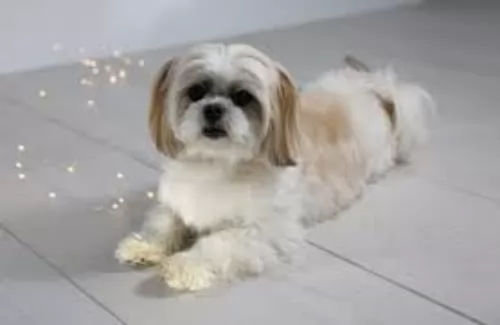 The Maltese Shih Tzu is an attractive little dog who is guaranteed to make you a splendid pet. Those who have owned both Maltese and Maltese Shih Tzu will tell you that the temperament of this dog is more amicable than that of the Maltese.
The Maltese Shih Tzu is an attractive little dog who is guaranteed to make you a splendid pet. Those who have owned both Maltese and Maltese Shih Tzu will tell you that the temperament of this dog is more amicable than that of the Maltese.
With his amicable nature, he is willing to be everyone’s friend, and he makes a particularly good choice for elderly people.
Being such a people-dog, the Maltese Shih Tzu's greatest joy comes from being petted and taken notice of by his human family. He can’t bear to be left for long periods of time. Like any other dog, he will require training and socialization, requiring a firm, balanced, consistent, fair owner.
Cheerful and good-natured, when he is loved to the moon and back, this little dog promises to make you and exceptional best friend.
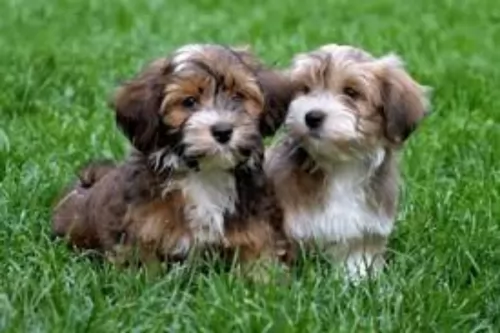 A very healthy breed, the Havanese doesn’t have a lot of health issues, but they are not immune to the problems of small breed dogs. The issues they do have are:
A very healthy breed, the Havanese doesn’t have a lot of health issues, but they are not immune to the problems of small breed dogs. The issues they do have are:
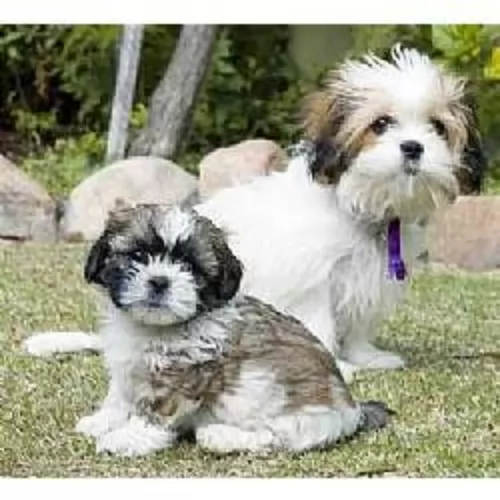 The Maltese Shih Tzu is a robust little dog, and with good care he can live to be anything between 10 to 15 years of age.
The Maltese Shih Tzu is a robust little dog, and with good care he can live to be anything between 10 to 15 years of age.
There are some health issues you want to be aware of with this particular dog breed.
Your little canine friend can have respiratory problems because of him being a flat-faced breed. Known as brachycephalic dogs, these dogs can have breathing difficulties. They are usually fine when resting, but during exercise or if they become too hot, they battle with breathing. It makes them more prone to heatstroke, so it is important to keep dogs like this cool and calm.
This is actually a common problem in small dogs - dislocation of a bone at a joint. Patellar luxation is when the knee joint slides in and out of place, causing pain.
This is a disease which is seen in the Shih Tzu and Maltese. Symptoms include uncontrollable shaking and tremors. These can continue all day. The illness is worse during times of stress and there may even be difficulty with walking. The cause is unknown but he will certainly need to get to the vet.
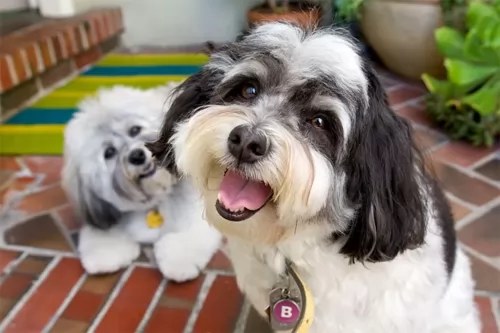 Feed 3 to 4 times per day a high quality dry puppy food for toy or small dogs. Feed ¼ to ½ cup each time.
Feed 3 to 4 times per day a high quality dry puppy food for toy or small dogs. Feed ¼ to ½ cup each time.
Remember these are small dogs and don’t overfeed. Feed a high quality dry food for small or toy dogs. Feed twice a day at about ½ cup each time.
The breed is generally very healthy.
This breed is not an overly active dog, but he does need some exercise. A nice walk once a day or a backyard to play in. They play inside as well as out. Don’t over exercise the Havanese. They do well in obedience and confirmation more so than agility or fly ball
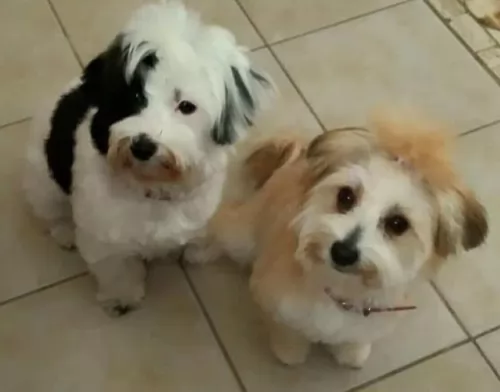 The Mal-Shi is a small dog and will require eating two small meals a day. An adult Mal-Shi will eat according to his age, size and activity levels.The quality of the dog food you buy will make a huge difference to his wellbeing. The better quality foods – those without preservatives, colorants and fillers will ensure good health and longevity for your pet.
The Mal-Shi is a small dog and will require eating two small meals a day. An adult Mal-Shi will eat according to his age, size and activity levels.The quality of the dog food you buy will make a huge difference to his wellbeing. The better quality foods – those without preservatives, colorants and fillers will ensure good health and longevity for your pet.
Don’t just give him dry kibble every time – mix in some chopped up cooked chicken, brown rice and vegetables. Remember that some vegetables like onion can be bad for your pet.
Dogs love simplicity, and feeding your dog these simple foods will ensure you don’t battle with upset stomachs. Make sure you always have a bowl of fresh, cool water available for your pet.
Trim his nails when they get long and don’t wear down naturally.
Check his ears for redness, itchiness and discharge which could indicate an ear infection.
If you have him professionally groomed, you will still need to brush him twice a week. It’s also your time to check him over for ticks and fleas and any unusual lumps.